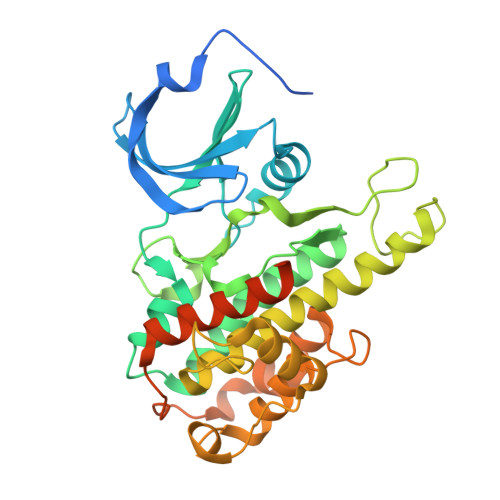Covalent docking of large libraries for the discovery of chemical probes.
London, N., Miller, R.M., Krishnan, S., Uchida, K., Irwin, J.J., Eidam, O., Gibold, L., Cimermancic, P., Bonnet, R., Shoichet, B.K., Taunton, J.(2014) Nat Chem Biol 10: 1066-1072
- PubMed: 25344815
- DOI: https://doi.org/10.1038/nchembio.1666
- Primary Citation of Related Structures:
4LV0, 4LV1, 4LV2, 4LV3, 4M8T - PubMed Abstract:
Chemical probes that form a covalent bond with a protein target often show enhanced selectivity, potency and utility for biological studies. Despite these advantages, protein-reactive compounds are usually avoided in high-throughput screening campaigns. Here we describe a general method (DOCKovalent) for screening large virtual libraries of electrophilic small molecules. We apply this method prospectively to discover reversible covalent fragments that target distinct protein nucleophiles, including the catalytic serine of AmpC β-lactamase and noncatalytic cysteines in RSK2, MSK1 and JAK3 kinases. We identify submicromolar to low-nanomolar hits with high ligand efficiency, cellular activity and selectivity, including what are to our knowledge the first reported reversible covalent inhibitors of JAK3. Crystal structures of inhibitor complexes with AmpC and RSK2 confirm the docking predictions and guide further optimization. As covalent virtual screening may have broad utility for the rapid discovery of chemical probes, we have made the method freely available through an automated web server (http://covalent.docking.org/).
Organizational Affiliation:
Department of Pharmaceutical Chemistry, University of California-San Francisco, San Francisco, California, USA.
















